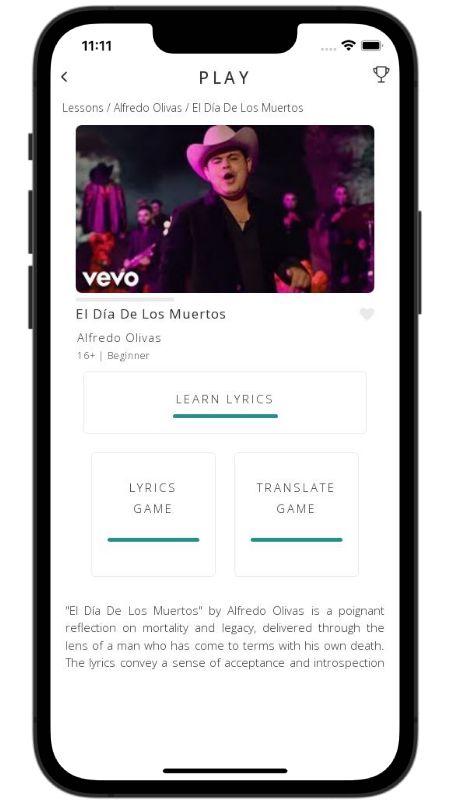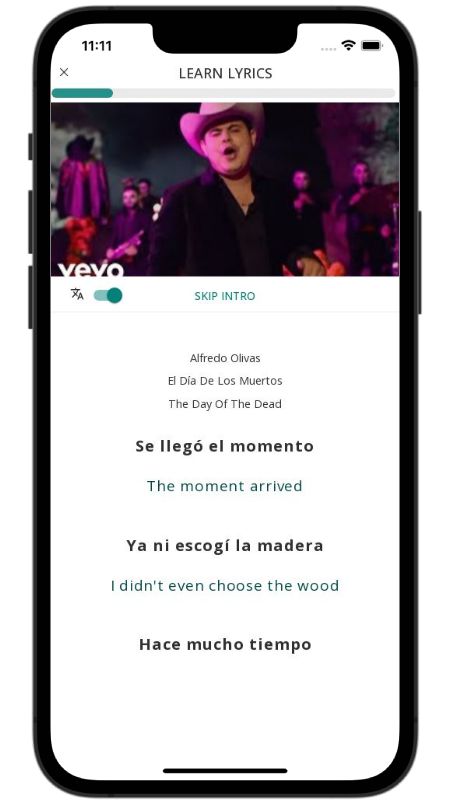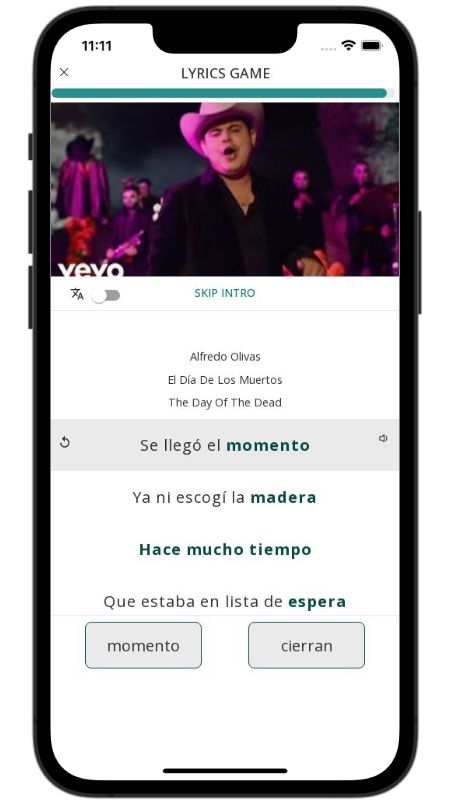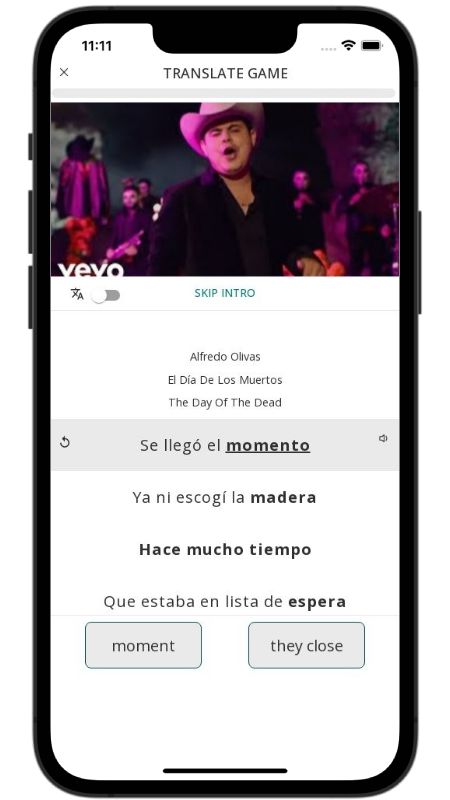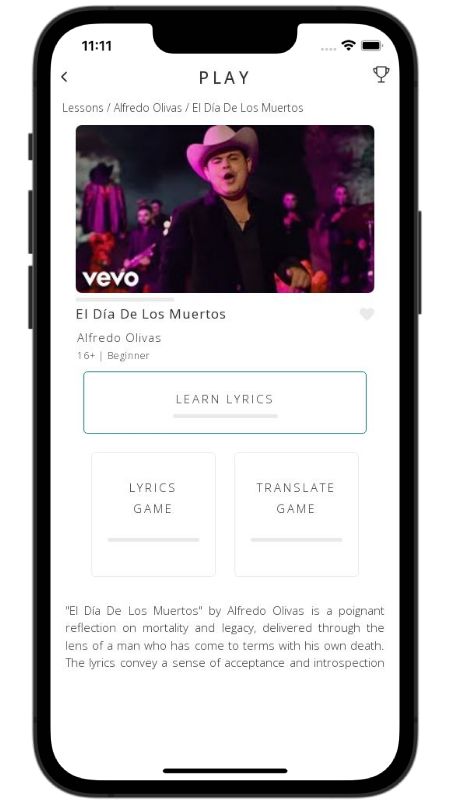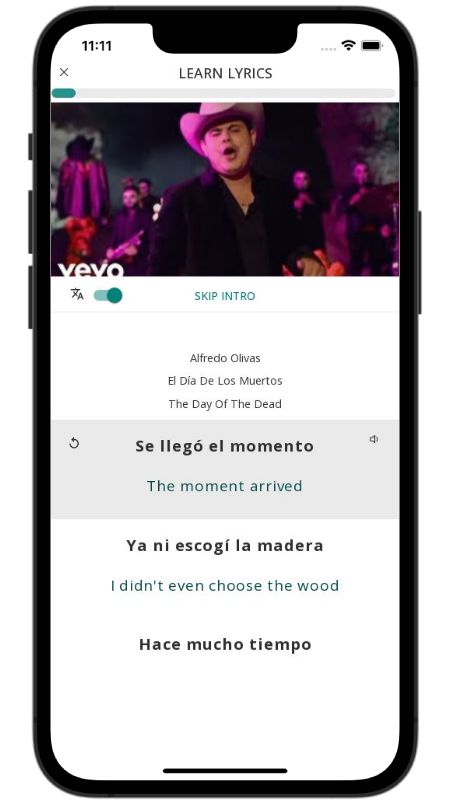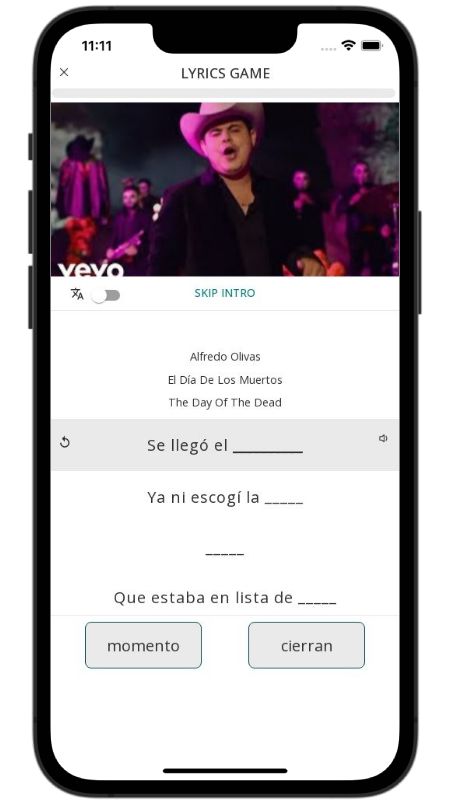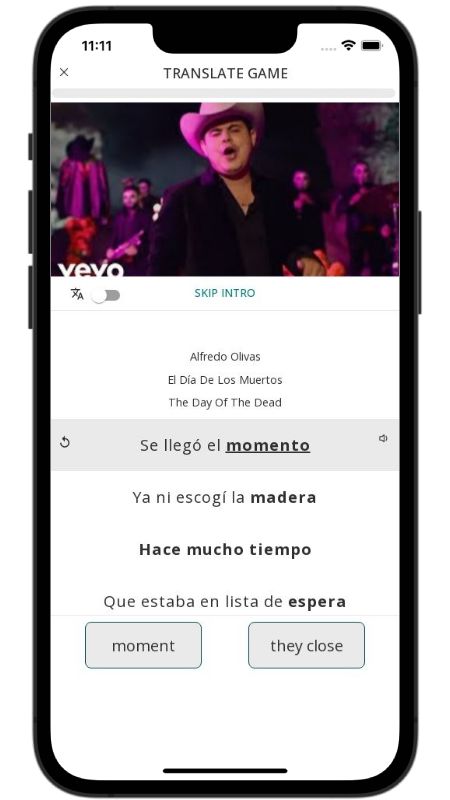El Día De Los Muertos Lyrics in English Alfredo Olivas
Below, I translated the lyrics of the song El Día De Los Muertos by Alfredo Olivas from Spanish to English.
These lyrics have verified word for word translations. Click any lyric word to see the translation and hear the pronunciation!
Verse 1
The moment's arrived
I didn't even pick the wood
Verse 1
A long time ago
that I was on a waiting list
Verse 1
I never stopped
to plan my funeral
Verse 1
How many guests?
Which gospels?
Chorus 1
And so suddenly
the light went out
Chorus 1
New address
and between the grave and the cross
Chorus 1
to the clan of the dead
now I'm a new graduate
Today, officially
my legacy will start
to be carried out
Maybe I was a nobody
but never average
and my dying now
won't take that gift from me
Well, I was to blame
because I knew that I was mortal
I apologize
for not attacking that evil
if I already knew
that I was allergic to death
What am I doing in this place?
where now it's already so inert
Lower the box
I won't give you more trouble
and without mercy
throw a fistful of dirt on me and close it
For today, my world just came to an end
this world of egos that, as you know
the one-eyed guy is always king
I was already doomed
and I'll keep waiting for your gifts
on the Day of the Dead
Lyrics and Translations Licensed & Provided by LyricFind
Did you like this lyrics translation?
Did you know?
In addition to reading lyric translations, you can now learn Spanish with music and lyrics from your favorite artists.
Yes, including El Día De Los Muertos by Alfredo Olivas!
No more boring lessons. You can now learn with engaging and culturally relevant lyrics from the best artists.
Apple and App Store are trademarks of Apple Inc.
Google Play and the Google Play logo are trademarks of Google LLC.
MORE ALFREDO OLIVAS
iOS AppAndroid AppWeb LessonsFree PDF WorksheetsJoin ClassroomLyrics TranslationBlogAbout UsBuy as GiftLifetime
